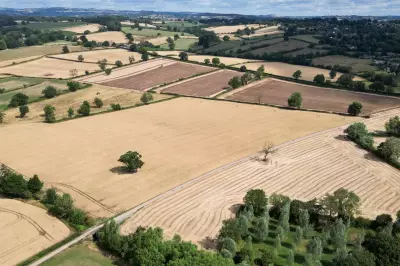
When ExxonMobil announced it would slow development on a massive $10bn plastics facility on the Texas Gulf coast, the corporate giant pointed to challenging market conditions. However, the truth reveals a far more compelling story of local resistance, where a 77-year-old shrimper named Diane Wilson proved that even the most entrenched industries can be made to pause.
The Shrimper Who Spotted the Playbook
Diane Wilson is no stranger to holding powerful corporations to account. I first met her in 2019 while following her landmark lawsuit against Formosa Plastics, a Taiwanese petrochemical giant accused of dumping billions of toxic plastic pellets, known as nurdles, into Texas waterways. This case, which resulted in a historic $50m Clean Water Act settlement—the largest citizen-led environmental settlement in US history—forged her into a formidable activist.
So, when Exxon arrived in Calhoun county late last year, Wilson immediately recognised the tactics. The company sought a tax abatement through a process that was rushed through a local school-board meeting, a requirement under Texas law. Seeing what she called "a deliberate attempt to avoid public opposition," Wilson sued the board in May, arguing it had violated Texas open-meeting laws.
Her legal challenge was successful. In late September, a district judge agreed and struck down the board's approval of the tax abatement. Less than two weeks later, Exxon announced it would pause its plans, citing those same market conditions. The timing was conspicuous, signalling a rare victory for community activists in a region long dominated by fossil-fuel interests.
Big Oil's Plastic Bet
Exxon's proposed facility was not an isolated project but a key part of a broader survival strategy for the fossil fuel industry. As global demand for gasoline begins to decline, companies like Exxon, Shell, and Dow are betting billions on petrochemicals—the building blocks for plastics. Industry projections suggest these products could drive nearly half of all future oil-demand growth by 2050.
According to Exxon's own December 2024 tax abatement application, the Calhoun county plant was designed to produce a staggering 3 million tons of polyethylene pellets annually. These are the raw materials for countless everyday items, from grocery bags to vinyl flooring. While marketed as indispensable, they originate from one of the planet's most carbon-intensive and polluting supply chains.
For communities like Calhoun county, this corporate pivot feels like a doubling down on pollution. The area's history is a case study in corporate impunity, where promises of jobs have often been followed by health risks, poisoned groundwater, and devastated fisheries.
A Lifetime of Fighting for the Coast
Wilson's connection to the region runs deep. She grew up in Seadrift, which she describes as the last authentic fishing village on the Texas Gulf coast. "The heart and soul of the community was the bay, the fish house, the boats," she recalled in an interview for the podcast A People's Climate. "I've been on a boat since I was eight years old… It's my life and my identity."
Her activism began decades ago after she discovered her small county was ranked first in the nation for toxic dumping. An introvert by nature, she was thrust into the spotlight and has since been arrested more than 50 times, led hunger strikes, and even scaled the White House fence—actions she describes as "soul power in action."
Her fight is part of a broader regional reckoning. In Louisiana's Cancer Alley, Sharon Lavigne has spent years battling another Formosa complex. In Port Arthur and Corpus Christi, organisers are challenging new gas export terminals. These are not isolated protests; they represent a growing, coordinated resistance to a century of extraction.
A Line in the Sand Against Plastic Polluters
Exxon's pause in Calhoun county is a significant delay, but campaigners argue it must become a permanent cancellation, not simply a relocation. The world cannot afford another generation of plastic production built on the same extractive logic that fuelled the climate crisis.
This story unfolds against a backdrop of global climate talks, where over 5,000 fossil-fuel lobbyists have gained access to UN negotiations in the past four years, highlighting how the very industries driving expansion are also shaping climate policy.
Wilson's story is a powerful reminder that grassroots action can effect change. "Eventually I lost my husband, the house, the boat," she reflected, due to the personal cost of her activism. "But you can lose it all and gain your soul." Her small-town lawsuit should be insignificant in Exxon's $500bn empire, but it matters profoundly. It proves that when a community demands transparency, it creates space for others to question why their towns should subsidise pollution in the name of development. "We have drawn a line in the sand against plastic polluters," she said, "and that line now runs through Calhoun county."





